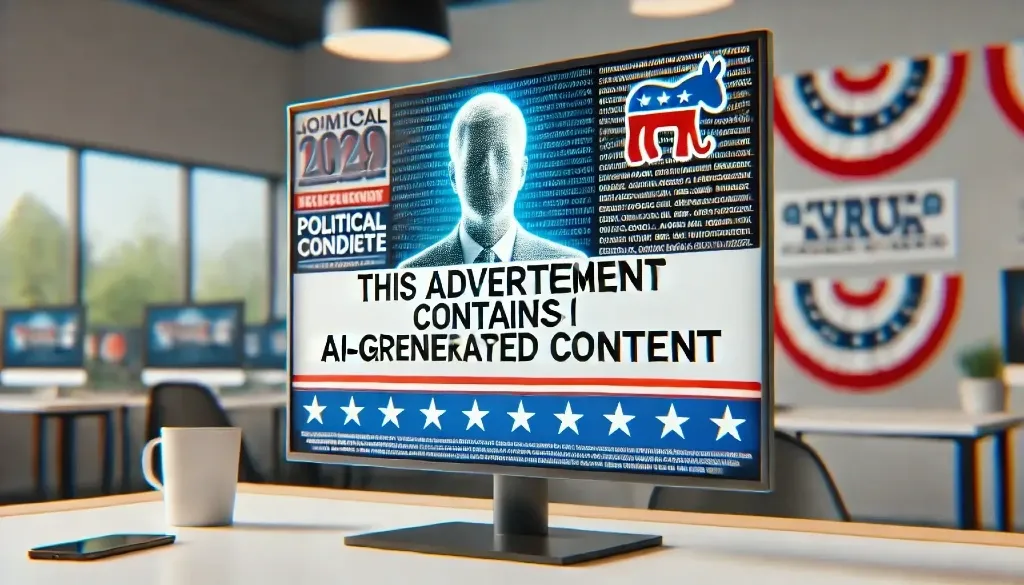FCC Under Tight Deadline To Implement AI Ad Disclosures
The FCC might not have time to enforce new AI Ad disclosure rules for political ads before the November elections.
Jericho Casper

WASHINGTON, August 7, 2024 – With less than 100 days before the U.S. presidential election, the Federal Communications Commission faces a tight deadline to implement proposed rules mandating that political advertisements on TV and radio disclose any use of artificial intelligence.
Given that the public comment period will end in mid-September, the FCC might find it difficult to adopt and implement the new regulations before the November elections.
"The timing of the notice … will make it challenging for the FCC to adopt new rules and have those rules become effective before November," the Cooley law firm said in a recent client alert.
The effort to regulate AI ads has the strong support of FCC Chairwoman Jessica Rosenworcel, who issued the proposal in May. She has said disclosure was not the same thing as censorship and that the FCC would not ban any AI-generated political ads.
FCC Republicans Brendan Carr and Nathan Simington have spoken out in disapproval of the proposed regulations, labeling them an attempt at political interference too close to the fall elections.
Most recently, Rosenworcel's proposal faced criticism from Sen. Eric Schmitt, R-Mo., who introduced an amendment to halt the plan at a Senate Commerce Committee session last Wednesday.
Schmitt argued that the FCC "has no legal authority at all to impose controls on political speech.” His amendment was defeated by the Democratic-controlled panel, 14-12.
Other lawmakers and AI experts have expressed concern over the potential for AI-generated images, videos, and audio clips to mislead voters in the upcoming U.S. election.
If the FCC or Congress fails to implement requirements in time, the upcoming 2024 presidential election cycle will likely mark the first instance in U.S. history where AI-generated content was used in political ads by campaigns, parties, and super PACs with the intent to influence voter decision-making.
Rosenworcel’s AI disclosure requirements would apply only to TV, radio, cable TV, and satellite TV providers. They would not apply to digital platforms like YouTube and X.
AI-generated political advertisements that can mislead and confuse voters have already been put into circulation.
One notable example was an ad run by the Republican National Committee following President Joe Biden’s initial re-election announcement that was generated using AI technology.
The FCC has sought comment on how AI political disclaimers should look, such as placement and wording. It also asked for the documentation that the companies would be required to post to online public files.
Public comments on the FCC’s proposed new rules are due Sept. 4, with reply comments due on Sept. 19, according to a public notice released Monday.









Member discussion